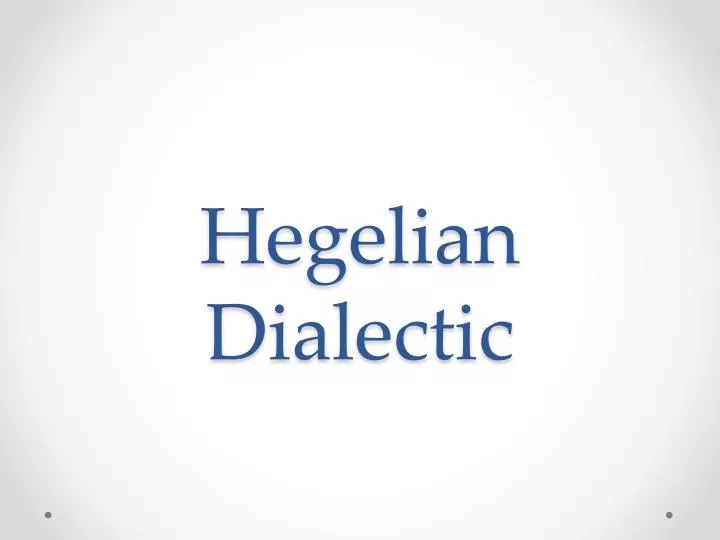

Stages in the history of the interpretation of Hegel Moreover, such a speculative mediation between opposites, when directed to the more impending problems of the time, such as those of religion and politics, led ultimately to the evasion of the most urgent and imperious ideological demands and was hardly able to escape the charge of ambiguity and opportunism. At the same time, however, the system deprived all of the implicated elements and problems of their autonomy and particular authenticity, reducing them to symbolic manifestations of the one process, that of the Absolute Spirit’s quest for and conquest of its own self.

This panoramic system thus had the merit of engaging philosophy in the consideration of all of the problems of history and culture, none of which could any longer be deemed foreign to its competence. Such a dialectical scheme (immediateness–alienation–negation of the negation) accomplished the self-resolution of the aforementioned problem areas-of logic, of metaphysics, and so on. This Absolute, Hegel held, first puts forth (or posits) itself in the immediacy of its own inner consciousness and then negates this positing-expressing itself now in the particularity and determinateness of the factual elements of life and culture-and finally regains itself, through the negation of the former negation that had constituted the finite world. According to Hegel, this attitude is more than a formal method that remains extraneous to its own content rather, it represents the actual development of the Absolute-of the all-embracing totality of reality-considered “as Subject and not merely as Substance” (i.e., as a conscious agent or Spirit and not merely as a real being).

It held that the speculative point of view, which transcends all particular and separate perspectives, must grasp the one truth, bringing back to its proper centre all of the problems of logic, of metaphysics (or the nature of Being), and of the philosophies of nature, law, history, and culture (artistic, religious, and philosophical). The Hegelian system, in which German idealism reached its fulfillment, claimed to provide a unitary solution to all of the problems of philosophy. As such, its thought is focused upon history and logic, a history in which it sees, in various perspectives, that “the rational is the real” and a logic in which it sees that “the truth is the Whole.” General considerations Problems of the Hegelian heritage The term is here so construed as to exclude Hegel himself and to include, therefore, only the ensuing Hegelian movements. Hegelianism, the collection of philosophical movements that developed out of the thought of the 19th-century German philosopher Georg Wilhelm Friedrich Hegel.
#Hegelian dialectic. how to
COVID-19 Portal While this global health crisis continues to evolve, it can be useful to look to past pandemics to better understand how to respond today.Student Portal Britannica is the ultimate student resource for key school subjects like history, government, literature, and more.Demystified Videos In Demystified, Britannica has all the answers to your burning questions.This Time in History In these videos, find out what happened this month (or any month!) in history.#WTFact Videos In #WTFact Britannica shares some of the most bizarre facts we can find.Britannica Classics Check out these retro videos from Encyclopedia Britannica’s archives.Britannica Explains In these videos, Britannica explains a variety of topics and answers frequently asked questions.


 0 kommentar(er)
0 kommentar(er)
